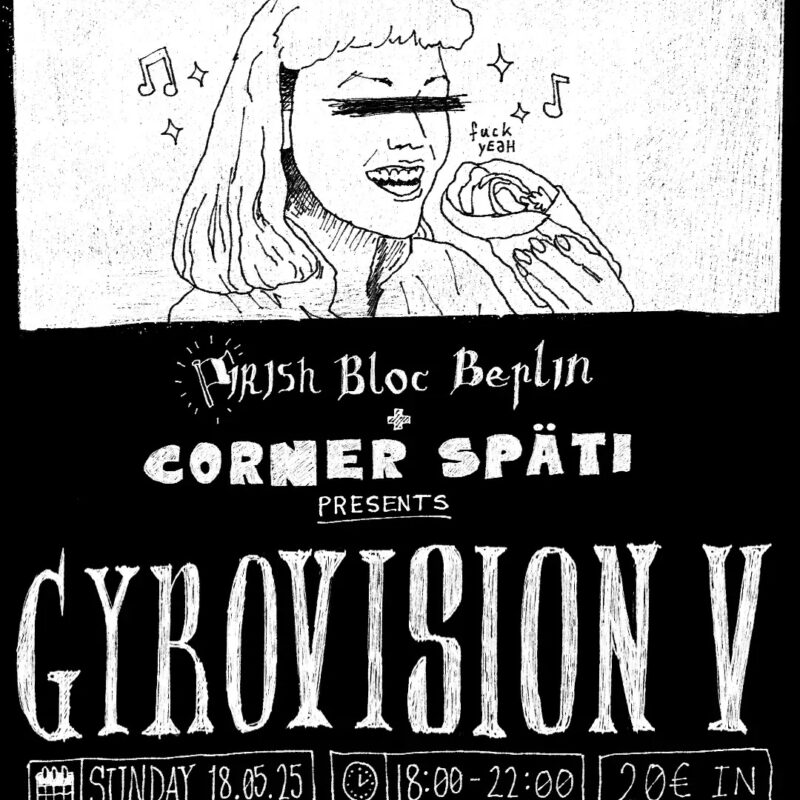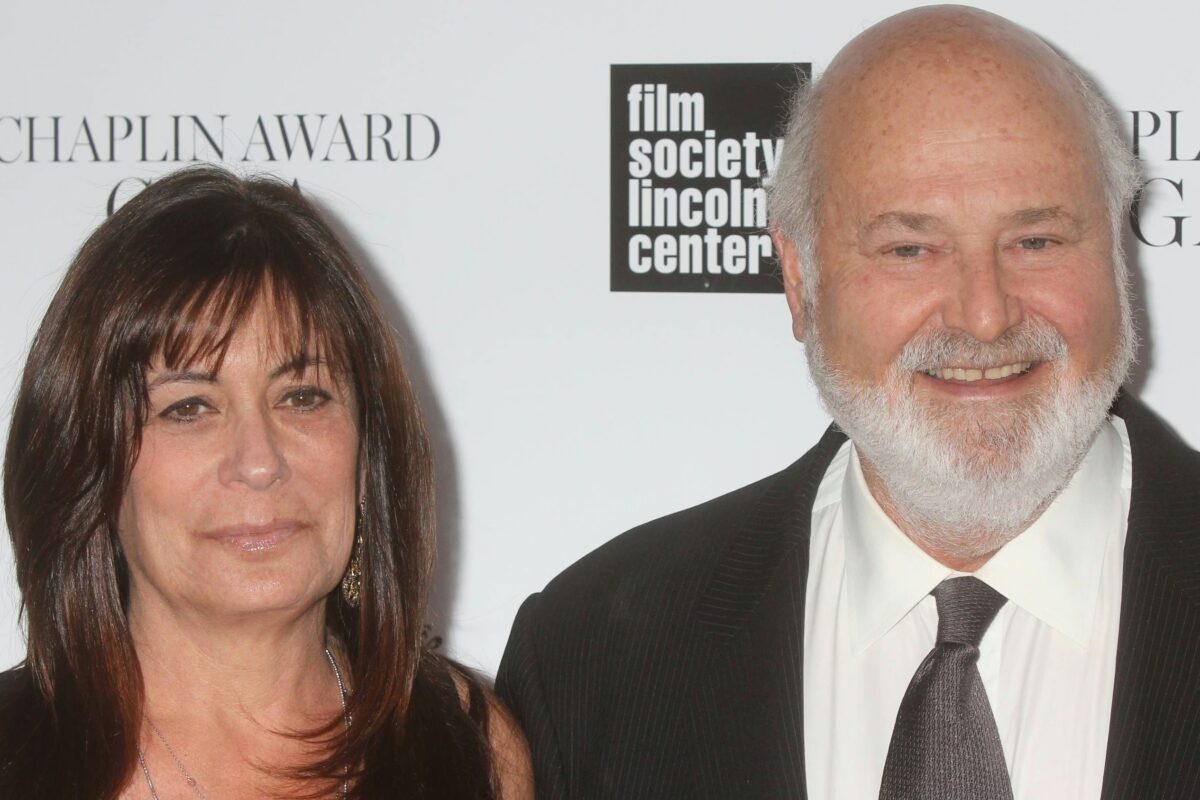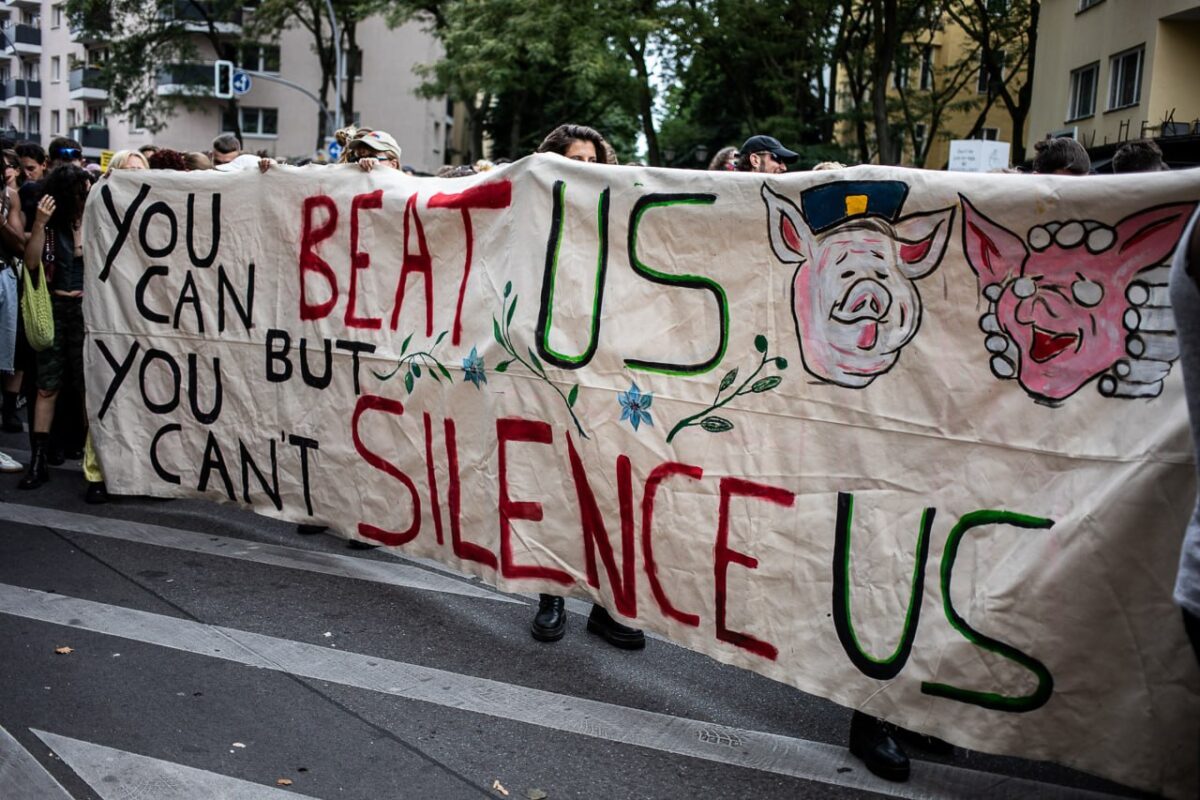Hi Ciarán, thanks for talking to us. Can you start by just briefly introducing yourself?
I’m a comedian and researcher and probably better known as a podcaster with Corner Späti. We attempt to cover European politics from a left-wing and less serious perspective. We’ve been doing this for about 6 years now.
And now for the fifth time, you’ll be doing Gyrovision. Let’s start with the question I keep hearing, and will not work in a printed interview. How do you pronounce Gyrovision?
That is debated. One of Corner Späti’s co-hosts is Greek, and he gives out to me about pronouncing gyrovision with that hard English “G.” He’s informed me that it is actually pronounced “Eurovision.”
But I like calling it “geero-vision.” So, the official pronunciation of Gyrovision is with a hard G.
And what is Gyrovision?
When we started Corner Späti, we had a focus on Europe. And I’ve always felt that the unifying aspect of “European culture”––with heavy quotation marks––is actually Eurovision.
A lot of people on the right will say that it’s Philosophy and Christendom and Architecture and all that very dodgy stuff, when, in reality, I still think it’s Eurodance, and Cascada, and teenage binge drinking in front of your local rinky dink funfair. And Eurovision, I think, represents that quite well. I wanted to show my co-hosts Eurovision through my eyes.
We had to wait a year, because when we started the podcast in 2019, and BDS had called a boycott because Israel was hosting. And as much as I love Eurovision, it’s not more important than solidarity with the Palestinian people. The following year was the pandemic year, and we had to cancel last-minute.
Finally, in 2021, we started doing our own commentary on the Eurovision. That’s how Gyrovision started. We always made this joke that Gyro was the substitute word for a cheap knockoff version. I think the joke started originally as GyroDisney instead of EuroDisney, but then expanded to this.
Then last year, we did a boycott-friendly version. We try to make something as close to Eurovision as possible, without giving the European Broadcasting Union (EBU) any money or attention.
Before we talk about the boycott, there is a difference between Gyrovision and other comedic coverage of Eurovision in that you actually enjoy this shit. What is it about Eurovision that you like?
Part of it is definitely that I am Irish, and we have a, er, relationship with Eurovision. Ireland is currently, although probably not for long, joint first place with Sweden in most of the Eurovision wins of.
I have very nostalgic childhood memories of people in my street getting together to watch Eurovision. In Ireland, it would always be the first sunny day of the year. People would have barbecues in the garden, and then you’d go inside to watch the telly and see this contest happening.
People usually say it’s rubbish, but end up watching it regardless. It’s one of the most-watched live events in the world, more watched than the Super Bowl. Yet no one likes talking about it, which I find fascinating.
It scratches all the itches of music, pageantry, geography, and a fair amount of politics, even though they try to deny that’s there.
And yet most of the coverage talks less about the songs and more about who votes for whom and who doesn’t vote for whom.
People will say: “oh, Greece and Cyprus always vote for each other, it must be corruption.” And yeah, corruption has happened, especially with Azerbaijan, but it’s more because there’s a lot of Cypriots in Greece, and there’s a lot of Greek people in Cyprus who watch it at home.
You can also explain that with the UK and Ireland. The UK often gives points to Ireland, but Ireland doesn’t give points to the UK. People say “that must be the history,” but it’s more that there’s probably just more Irish people in the UK than there are British people in Ireland.
For a lot of countries, it’s very high stakes. This is the only international representation they have. A lot of countries like, famously Moldova, are not successful at sports. They take Eurovision very, very seriously, because it’s the only time Moldova is really represented on an international stage.
This means that they often have an outsized performance at the competition. I would describe Moldova’s characteristic at Eurovision as being drunk at the opening scene of a Wes Anderson movie. That’s the vibe their music usually gives. And it’s a lot of fun.
Every year, there’s always been some low level calls to boycott Eurovision because it features Israel. And these calls have been largely irrelevant. Last year, it was different. How did Gyrovision deal with the genocide?
A lot of these calls fall on deaf ears, because Eurovision has a very intense casual viewership. People usually just watch. Most people who watch Eurovision are watching it because there’s nothing else on telly that night.
There are super fans, but most people are very casually engaged, including the people who call for boycotts, who usually call for a boycott way too late. I usually see calls for kicking Israel out in March or April. But Eurovision 2025 was set in stone in September 2024. It’s a very slow moving and bureaucratic process.
The usual rule for BDS is they’ll only call for a boycott when Israel hosts Eurovision. As far as I understand, there isn’t an official boycott this year, probably because BDS is asking a lot of people right now or they think they are.
Last year, I knew a boycott was coming for obvious reasons. We listened to people saying what they wanted to do, and we said, “Fuck it. We can do this without the EBU getting any money”. We were able to get the songs in a way where EBU doesn’t get any money and we did the Eurovision ourselves. People voted. Obviously, we don’t include Israel and Azerbaijan for their various war crimes.
What are your criteria for who you don’t include? You exclude Israel and Azerbaijan. But you let people vote for Britain who are responsible for their fair share of war crimes.
Israel and Azerbaijan have used Eurovision for soft power reasons. Last year, the Israeli president intervened to make sure that Israel went to the competition. They take this stuff very seriously.
I think people recognize that for all the crimes the various other countries commit, I don’t think they would care all that much if they weren’t in Eurovision anymore, but Israel really seems to care.
This is probably the only thing where Israel is really relevant on the international stage. It’s the only thing where they’re represented as a country. They’re not big World Cup players. I never hear anyone talk about Israel in the Olympics, because it’s usually just America and China getting all the medals.
Irish-South African professor Patrick Bond makes pretty much the same argument, saying that the sports boycott was really important for South Africa, but if you want to hit Israel you’ve got to hit Eurovision.
Yeah. And unfortunately, I see that cynically deployed by Eurovision super fans who feel a little bit guilty, but they still want to watch the Eurovision. They say that no-one’s calling for a FIFA boycott of Israeli clubs.
But this is not relevant. You have to direct your energy somewhere. And unfortunately, Eurovision is the place. All this can also be said for Azerbaijan. Azerbaijan is also not very relevant in various sports, but they are relevant in Eurovision.
Plus there is a call for a FIFA boycott, even if it won’t hit Israel as much. Coming back to the way in which Israel tries to weaponize Eurovision: can you say something about last year’s and this year’s Israeli entries?
Last year’s entry was Eden Golan. It was less about the artist and more about the song itself. The song was originally titled October Rain, and as soon as that title was leaked, everyone on Eurovision fan media was saying: “Oh, fuck no. We know exactly what this is”.
I believe that they were initially trying to provoke the European Broadcasting Union into kicking them out, like they had done with Belarus. Then, when it looked like Iceland was about to send a Palestinian musician, Israeli President Herzog went to the national broadcaster Kan and said, “Change the lyrics.” That’s how we got the song Hurricane. When it was performed, it was booed live at the arena.
Now, I boycotted last year. That was a very easy decision for me. I’ve had these politics around Israeli Apartheid for a very long time. But I also heard a lot of reports of people going to Eurovision 2024, saying: “Music is music. Let’s leave politics out of it”, then leaving the competition saying: “Oh God, fuck Israel.”
So it served as a weird, radicalizing event for a lot of people. There was also a lot of shenanigans backstage, which goes into a whole other set of drama.
This year there’s Yuval Raphael. She was at the Nova music festival on October 7th 2023. She is considered a survivor. Her song is called A New Day Will Dawn. And they’re very much trying this year to once more redirect the conversation onto Israeli victims of this conflict at the expense of Palestinian victims, of whom there are many more
That’s how the song is being instrumentalized this year. Both are trying to elicit sympathy from a European audience, which, from what I’ve seen, is failing. But unfortunately, institutions are just putting up with Israel’s presence in this competition.
But there is more of a vocal call for boycott, for example from over 150 former Eurovision contestants including an Irish winner. Do you get a sense that something is changing?
Unfortunately, I don’t think anything has changed. Last year, the comparison that was often made was that Russia was kicked out after their invasion of Ukraine. But the EBU only banned Russia after ten national broadcasters in Eastern Europe, Central Europe, and I believe the Netherlands, threatened to pull out of the competition unless Russia was kicked out. It got a lot of institutional support.
Kicking Israel out has had a lot of support from fans, casual viewers, musicians, and people who are just staff at these events. Also songwriters, but who remembers the songwriters? Unfortunately, there’s still not enough institutional support.
If anything is changing, the unsung hero leading the charge is actually the Slovenian national broadcaster. They’re being the most vocal about this, and dragging in other countries like Spain, Norway, and Ireland.
The Slovenian national broadcaster started asking: “Why is Israel here? Can we talk about that? It doesn’t feel right.” The national broadcaster in Israel has broken a lot of EBU rules, and for this reason alone, they should be kicked out, regardless of any moral conversation about Palestine. They have been given a green light on a bunch of other rules that they’ve broken, such as independence from government propaganda, or promoting military things.
Do you have any tips for Eurovision? I know you’re very fond of the Australian entry.
This year I’m enjoying how horny the Australian entry is. I love how explicit you have to be when you do innuendo in a Eurovision Song. You understand that most of the audience don’t speak English as a first language, so you are very direct.
In Eurovision, these are 20 something songs that you will never listen to in your spare time. They do not reflect your actual music taste, but you are going to pick your favorite song from the bunch, and then you are going to start yelling at everyone who disagrees with you. It’s about getting very impassioned about something that does not matter and shouldn’t matter and should just be a bit of silly television.
How can people listen to songs and still observe the boycott?
There are two ways to do this. One, unfortunately, is Spotify. You can listen to all the songs in Eurovision this year but the money goes to the artists’ record label. And when we say money, we mean a fraction of a cent. We know how Spotify works. But that money does not go to the EBU.
The second way would be to use an online platform called Invidious, which is a no-tracking mirror of YouTube. None of the advertising revenue is counted by YouTube, because it hasn’t tracked you.
Let’s move on to Gyrovision. What will happen at Gyrovision and why should people go?
I and other hosts of Corner Späti will be doing commentary over the songs. We make our own opening ceremony. We make our own postcards, which is Eurovision terminology for the little bit that happens before the song plays showcasing the country.
We do all this to show you Europe through our somewhat sardonic lens. We do the usual stuff like dressing up, drinking, and dancing, all in the name of donating money to the Palestinian charities Heal Palestine and The Ghassan Abu Sittah Children’s Fund.
It’s for people who don’t take Eurovision very seriously. As much as I am a fan, I learn about it so that I can just kind of joke along with it in a knowing manner. It should be a lot of fun.
And this year, Gyrovision isn’t on the day of Eurovision, it’s the day after.
Yes, this year it is on the Sunday, because since we’re boycotting it doesn’t actually matter when we host it. It’s from 6pm till 10pm at Lark Berlin. Because it’s on Sunday, we are ending a little earlier.
You can come along and vote for your own songs, just like a real Eurovision, and we’ve got someone who’s made a little app for us to tally the votes.
Because it’s on the Sunday, people can also come to Palivision on Saturday, and we’re not competing like last year.
Absolutely, the feud that happened last year, we were just circling each other, staring daggers.
Is there anything else you want to say that we haven’t said,
Just that I am a fan of the Eurovision Song Contest, and I represent the type of person who could watch Eurovision again if the European Broadcasting Union actually kicked out Israel. I am the market they are missing out on.
I hear a lot of people talk about Eurovision from a perspective of “I never watched anyway”. I don’t think that’s the kind of voices that the EBU needs to hear. They need to hear from more people like me who say: I would watch, but you fucked up, so fix it.



